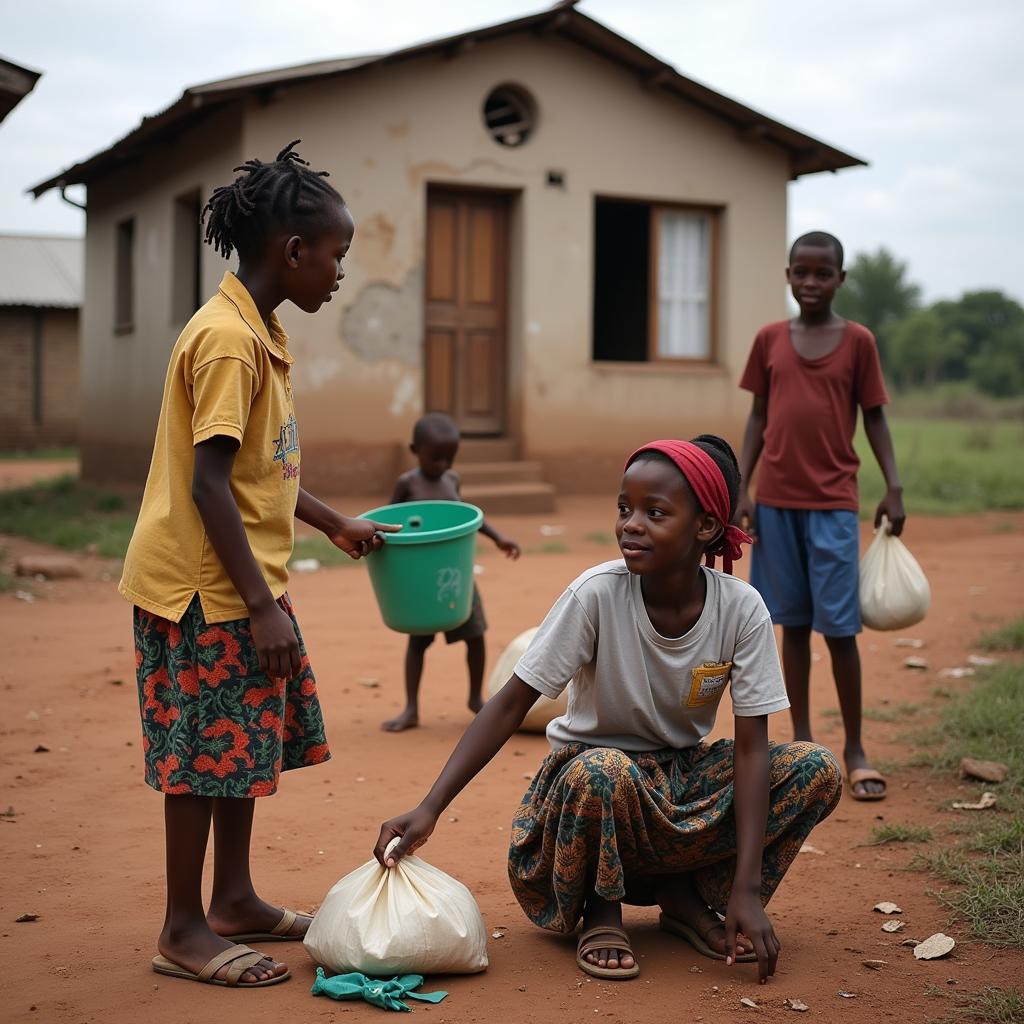Pakistan’s education system faces numerous challenges that hinder its ability to provide quality education for all. These problems impact various aspects of education, from access and infrastructure to curriculum and teacher training. Understanding these issues is crucial for developing effective solutions and ensuring a brighter future for the nation.
The quality of education in Pakistan is often compromised by outdated teaching methodologies. Many schools rely on rote learning and memorization, neglecting critical thinking and problem-solving skills. This traditional approach fails to equip students with the skills needed for the 21st-century job market. Furthermore, a lack of investment in educational resources and infrastructure creates a significant barrier to learning. Many schools, especially in rural areas, lack basic facilities like libraries, laboratories, and even proper classrooms. This disparity in resources perpetuates inequality and limits opportunities for students from disadvantaged backgrounds. The curriculum also needs to be more relevant to the needs of the Pakistani economy and society. What is taught in schools often doesn’t align with the skills required for employment, leading to a mismatch between education and job opportunities. This is particularly true in the fields of science, technology, engineering, and mathematics (STEM). Here’s a helpful link: economic problems of pakistan and their solutions pdf.
The Socioeconomic Factors Affecting Education
Socioeconomic disparities play a significant role in the educational landscape of Pakistan. Poverty often forces families to prioritize immediate needs over education, leading to high dropout rates, especially among girls. Cultural norms and traditions in some areas also discourage girls’ education, further exacerbating gender inequality. Additionally, political instability and conflict can disrupt the educational process, making it difficult for children to attend school regularly and safely.
 Socioeconomic factors impacting education in Pakistan
Socioeconomic factors impacting education in Pakistan
Curriculum and Teacher Training: Key Areas for Improvement
Addressing the problems of education in Pakistan requires a multi-pronged approach. Revamping the curriculum to focus on practical skills, critical thinking, and problem-solving is essential. Teacher training programs should be updated to incorporate modern pedagogical techniques and equip teachers with the skills to effectively deliver the new curriculum. Furthermore, increasing investment in educational infrastructure, especially in underserved areas, is crucial for ensuring equal access to quality education for all children. For insights into computer science education, see pakistan institute of computer science.
How Can Technology Improve Education in Pakistan?
Integrating technology into the education system can be a game-changer. Online learning platforms, educational apps, and digital resources can supplement traditional classroom teaching and provide access to quality education for students in remote areas. Technology can also personalize learning, catering to individual student needs and learning styles.
Bridging the Gap: Addressing Inequality in Education
Reducing inequality in education requires targeted interventions. Scholarships, financial aid, and school feeding programs can help alleviate the financial burden on families and encourage school enrollment. Community-based education programs can reach marginalized communities and address specific cultural barriers to education. Promoting girls’ education through awareness campaigns and targeted support is vital for achieving gender equality and empowering women. You might find this link relevant: what is gre test in pakistan.
What is the Role of the Government in Improving Education?
The government plays a critical role in shaping the future of education. Increased funding for education, along with effective policy implementation and monitoring, is essential. Collaboration with NGOs, international organizations, and the private sector can leverage resources and expertise. Promoting transparency and accountability in the education system is crucial for ensuring that resources are used effectively and that all children have access to quality education.
“Investing in education is not just about spending money; it’s about investing in the future of our nation,” says Dr. Ayesha Khan, a leading education expert in Pakistan. “Every child deserves the opportunity to reach their full potential, and education is the key to unlocking that potential.”
Conclusion
What Are The Main Problems Of Education In Pakistan? The challenges are multi-faceted, ranging from inadequate resources and outdated teaching methods to socioeconomic disparities and cultural barriers. However, by addressing these issues through comprehensive reforms, increased investment, and a commitment to quality education, Pakistan can create a brighter future for its children and empower them to become productive members of society. For further understanding of political issues, consider reading this: political issues in pakistan essay.
FAQ
-
What are the biggest obstacles to education in Pakistan?
Poverty, lack of infrastructure, and outdated curriculum are major obstacles. -
How can we improve the quality of education in Pakistan?
Investing in teacher training, updating the curriculum, and using technology are key strategies. -
Why is girls’ education important in Pakistan?
Educating girls empowers them, improves family health and well-being, and contributes to economic growth. -
What is the literacy rate in Pakistan?
The literacy rate is currently estimated to be around 60%. -
How can technology help improve access to education?
Online learning platforms can reach students in remote areas and offer personalized learning experiences. -
What is the role of parents in their children’s education?
Parental involvement, support, and encouragement are vital for a child’s academic success. -
How can the government improve the education system?
Increased funding, effective policies, and collaboration with various stakeholders are essential for improvement.
Need Assistance?
Contact us 24/7 for any help:
Phone: +923337849799
Email: [email protected]
Address: Dera Ghazi Khan Rd, Rakhni, Barkhan, Balochistan, Pakistan
You might also be interested in exploring these related topics:
- Education reform in developing countries
- The impact of poverty on education
- The role of technology in education
- Gender equality in education
Our website offers a wealth of information on these and other important issues. We encourage you to explore our resources and join the conversation about creating a better future through education. Here’s a potentially useful resource: printers in pakistan.